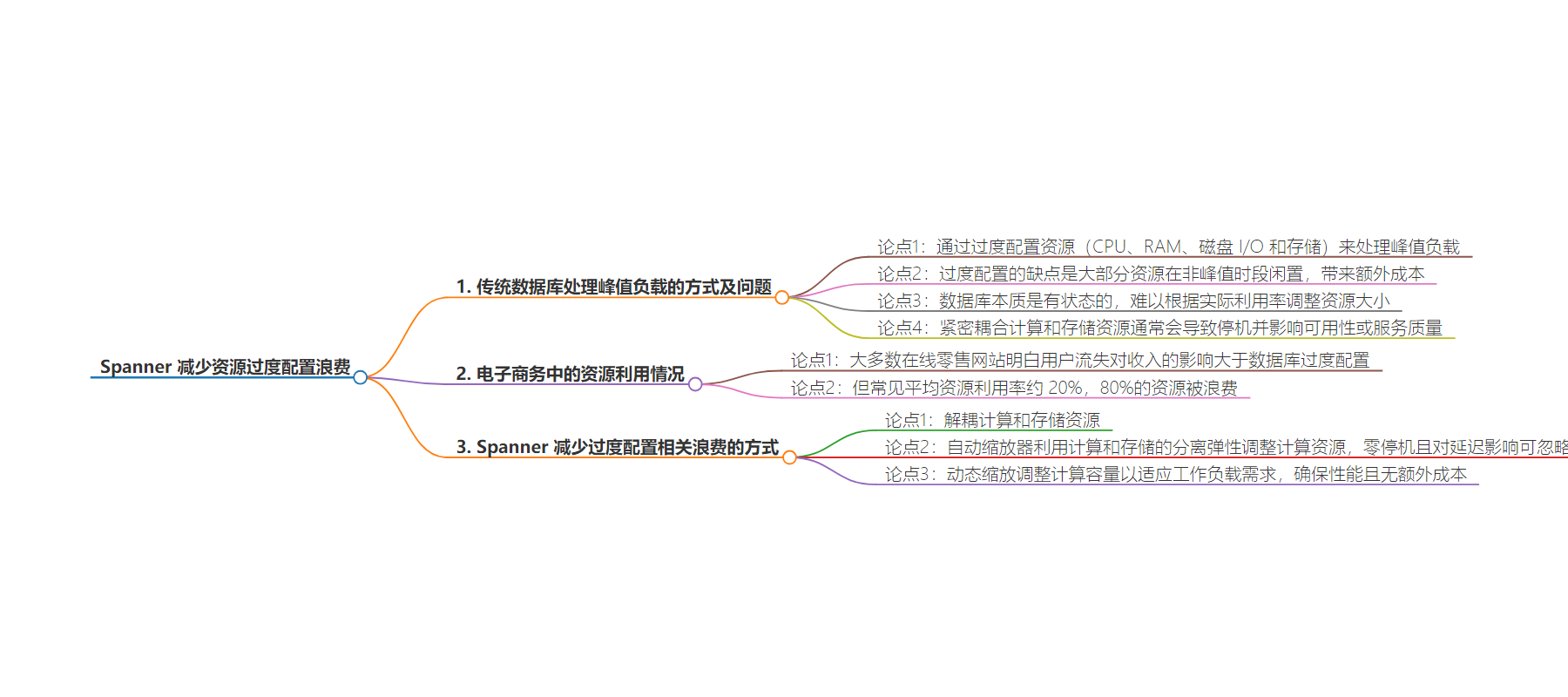包阅导读总结
1. 关键词:Spanner、数据库、资源、过 provision、弹性调整
2. 总结:传统数据库应对峰值负载常采用过 provision 资源的方式,导致资源浪费和成本增加。Spanner 不同于传统,解耦了计算和存储资源,其 autoscaler 能弹性调整计算资源,零停机且对延迟影响小,有助于减少浪费并确保性能。
3. 主要内容:
– 传统数据库处理峰值负载的常规方法是过 provision 资源,如 CPU、RAM、磁盘 I/O 和存储。
– 过 provision 的缺点是大部分资源在非峰值时段闲置,增加成本,且数据库因有状态难以按实际利用率调整资源。
– 紧密耦合计算和存储资源会导致停机和影响服务质量,所以数据库服务优先保证延迟和吞吐量,导致资源大量浪费。
– Spanner 与传统不同,解耦了计算和存储资源。
– Spanner 的 autoscaler 利用这种分离弹性调整计算资源,零停机且对延迟影响可忽略,能动态调整计算容量适应工作负载需求,确保性能且无额外成本。
思维导图:
文章地址:https://cloud.google.com/blog/products/databases/how-spanner-minimizes-the-need-to-overprovision/
文章来源:cloud.google.com
作者:Szabolcs Rozsnyai,Karthi Thyagarajan
发布时间:2024/8/12 0:00
语言:英文
总字数:1081字
预计阅读时间:5分钟
评分:84分
标签:数据库管理,云计算,成本优化,弹性计算,Google Cloud
以下为原文内容
本内容来源于用户推荐转载,旨在分享知识与观点,如有侵权请联系删除 联系邮箱 media@ilingban.com
This variability requires database infrastructure that can handle peak loads without compromising on performance. The conventional approach to handling these peaks is to overprovision resources i.e., CPU, RAM, disk I/O and storage.
The downside to overprovisioning is that most of the resources remain idle during non-peak hours, and therefore come with additional cost. In contrast to stateless application tiers, databases are by nature stateful, so right-sizing database resources to track actual utilization is typically not an option. In addition, tightly coupling compute and storage resources typically incurs downtime and can affect the availability or at the very least the service quality (degraded latency, for instance). So to meet their SLAs, database services need to prioritize consistent latency and throughput, despite the substantial waste in resources that that entails.
Going back to our e-commerce example, most online retail websites understand that loss of traffic due to frustrated users is a bigger hit to revenue than database over-provisioning. Still, depending on anticipated peak loads, it’s not uncommon to see average resource utilization that hovers around 20% — meaning that 80% of the allocated resources are wasted!
How Spanner helps reduce waste associated with over-provisioning
Unlike traditional database systems, Spanner decouples compute and storage resources. And Spanner’ autoscaler takes advantage of this separation between compute and storage to elastically adjust compute resources, all with zero downtime and a negligible impact to latency. This type of dynamic scaling that adjusts compute capacity to align with workload demands helps ensure optimal performance without extra costs.
